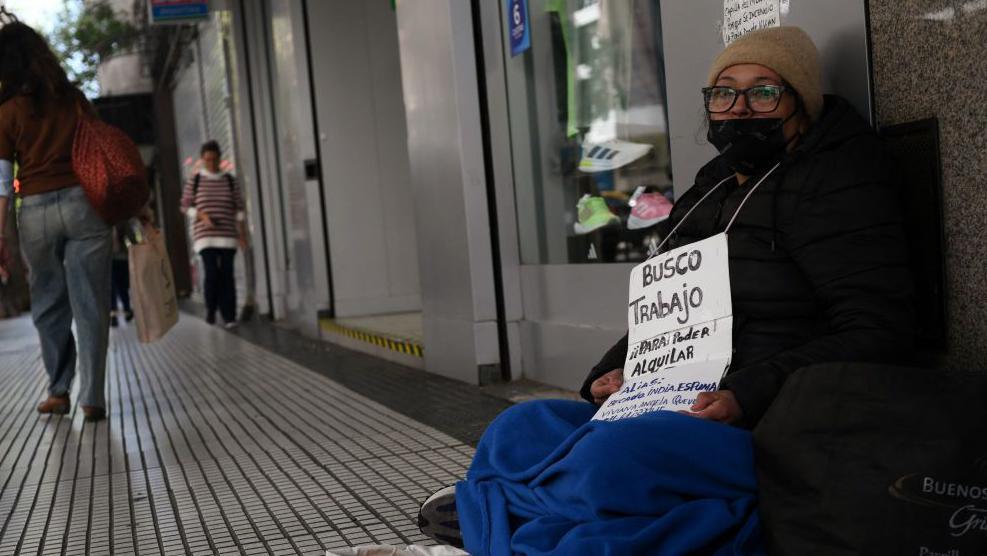Argentina records sharp rise in poverty

- Published
More than half of Argentina's 46 million people are now living in poverty, new figures indicate, in a blow to right-wing President Javier Milei's efforts to turn around the country's beleaguered economy.
The poverty figure for the first six months of this year was 52.9%, up from 41.7% in the second half of 2023, said the country's Indec statistics agency.
Since taking office in December, Milei has slashed subsidies for transport, fuel and energy and sacked thousands of civil servants, as he seeks to bring down inflation and reduce government expenditure.
Argentina's annual inflation rate in August remained one of the highest in the world at more than 230%.
However, Milei has successfully curbed rampant government overspending, widely blamed for the country's economic woes. After years of racking up huge budget deficits, Argentina has seen fiscal surpluses every month since February.
Speaking at a news conference, government spokesperson Manuel Adorni blamed previous left-leaning Peronist governments for the current troubles.
He described the increase in poverty as "a consequence of the populism that has subjected Argentina to so many years of misfortune and devastation".
"The government inherited a disastrous situation, the worst inheritance that a government has received in a democracy, perhaps one of the worst that a government has received in history," he added.
Poverty was already on the rise in Argentina before the Milei government took office. As recently as 2017, only about a quarter of the population were affected.
When Milei assumed the presidency, he promised shock therapy, devaluing the peso by 50% and cutting the number of government ministries by half.
But the president faces strong opposition, including from trade unions, who have repeatedly taken to the streets in protest at his programme and its effect on workers' rights.
Adding to his difficulties, his La Libertad Avanza coalition (Freedom Advances) does not command a majority in the Argentine Congress and has found it hard to strike cross-party deals.
Peronist lawmakers were quick to attack the figures, with one - Victoria Tolosa Paz - accusing the government of pursuing "relentless austerity" policies which she said were "battering working families".
While Milei's approval rating fell between August and September to 40%, his government remains relatively popular with Argentines at 53%, according to pollster Poliarquía.